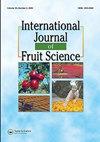埃塞俄比亚西南部Kaffa地区牛油果生产者市场参与影响因素分析
IF 2.5
3区 农林科学
Q2 HORTICULTURE
引用次数: 2
摘要
在发展中国家,小农参与市场对改善生计至关重要。尽管水果市场是货币的来源,但它并没有受到重视。因此,本研究旨在确定影响埃塞俄比亚Kaffa地区牛油果生产商市场参与决策和市场参与数量的因素。以生产潜力为基础,采用多阶段抽样的方法,有针对性地选择了金宝区和中国区。这项研究的数据是用科克伦公式从六个有代表性的家庭的384户家庭中收集的。采用了第一手资料和第二手资料。使用半结构化问卷收集原始数据。采用描述性统计和双栏计量经济模型进行分析。描述性统计显示,384户家庭(236户参与者,148户非参与者)中,男性牛油果市场参与者占89.19%,男性牛油果非市场参与者占76.69%。计量经济模型结果证实,生产者的市场参与决策(障碍1)受到性别、市场经验、教育程度和家庭规模的显著影响。牛油果市场参与的强度(障碍2)受到市场经验、信贷服务的可及性、推广联系、家庭规模和非农收入的显著影响。了解牛油果市场参与决策和参与水平的因素有助于政策制定者在地区和联邦政府层面重新调整政策。然后,本研究建议政府需要在市场导向生产方面投入更多努力,以提高鳄梨的生产率。信贷提供者也必须加强。此外,必须考虑到现代生产技术,以增加鳄梨的产量。本文章由计算机程序翻译,如有差异,请以英文原文为准。
Analysing the Factors that Influence Market Participation among Avocado Producers in Kaffa Zone of South-Western Ethiopia
ABSTRACT Market participation by smallholder farmers is crucial for livelihood improvement in developing countries. Even though it is the source of currency, the fruit market has not been given attention. Therefore, this study intended to identify factors influencing avocado producers’ market participation decisions and volume of market participation in the Kaffa zone, Ethiopia. Gimbo and Chena districts were selected purposefully with a multi-stage sampling method on the bases of production potential. Data for this study were collected from 384 households from six representative Kebeles with the Cochran formula. Both primary and secondary data were employed. Primary data was collected using a semi-structured questionnaire. Both descriptive statistics and the double hurdle econometric model were employed for analysis. The descriptive statistics showed that out of 384 households (236 participants and 148 were non-participants), 89.19% were male avocado market participants and 76.69% were male avocado non-market participants. The econometric model results confirmed that market participation decisions (hurdle 1) of producers were significantly influenced by sex, market experience, education level, and family size. The intensity of avocado market participation (hurdle 2) is significantly affected by the market experience, access to credit services, extension contact, family size, and off-farm income. Understanding the factors of both avocado market participation decisions and level of participation helps policymakers to re-adjust their policies both at the regional and federal government levels. Then, this study recommends that governments need to exploit more effort into market-oriented production to enhance the productivity of avocados. Credit providers also must strengthen. Additionally, modern production technologies must be taken into consideration to increase the avocado quantity produced.
求助全文
通过发布文献求助,成功后即可免费获取论文全文。
去求助
来源期刊

International Journal of Fruit Science
Agricultural and Biological Sciences-Agronomy and Crop Science
CiteScore
6.40
自引率
0.00%
发文量
64
审稿时长
10 weeks
期刊介绍:
The International Journal of Fruit Science disseminates results of current research that are immediately applicable to the grower, extension agent, and educator in a useful, legitimate, and scientific format. The focus of the journal is on new technologies and innovative approaches to the management and marketing of all types of fruits. It provides practical and fundamental information necessary for the superior growth and quality of fruit crops.
This journal examines fruit growing from a wide range of aspects, including:
-genetics and breeding
-pruning and training
-entomology, plant pathology, and weed science
-physiology and cultural practices
-marketing and economics
-fruit production, harvesting, and postharvest
 求助内容:
求助内容: 应助结果提醒方式:
应助结果提醒方式:


